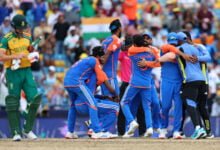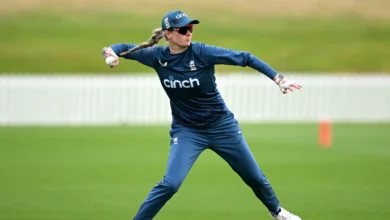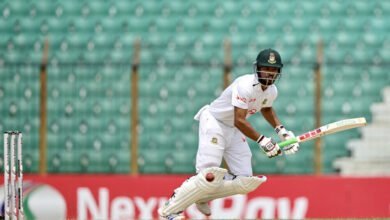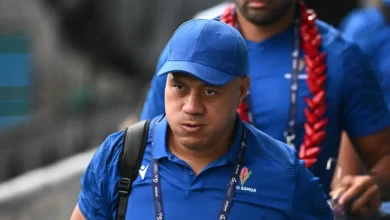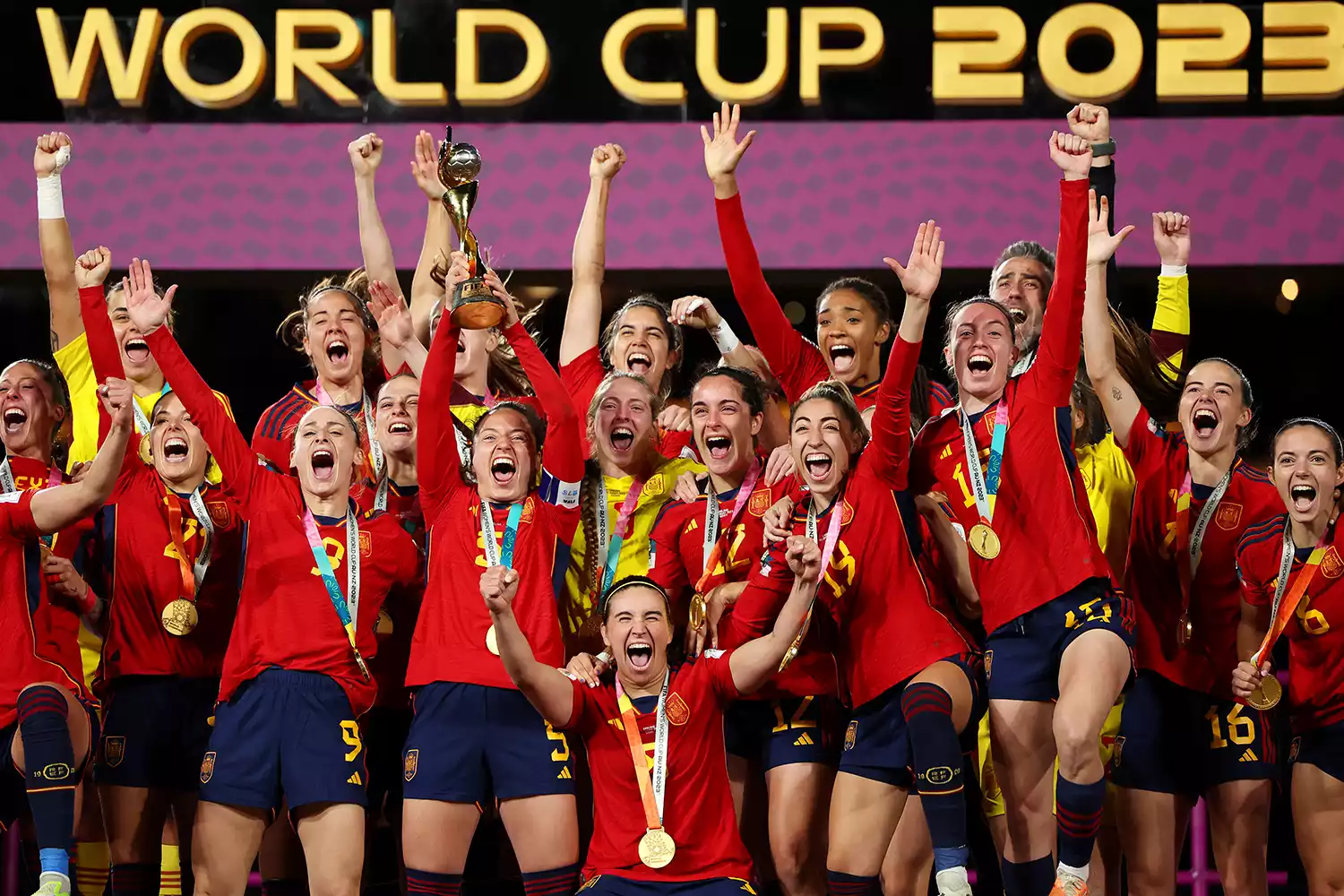
For the first time in Women’s World Cup history, Spain lifted the tournament trophy as world champions.
Early Sunday morning, England and Spain took to the pitch in Sydney, Australia for the final game of the 2023 Women’s World Cup, which has been ongoing for the last month in Australia and New Zealand. The first all-European final since 2003 eventually transpired into an exhilarating final match of the tournament — with the added drama of a saved penalty in the second half — but it was Spain, ultimately, that dominated and came out on top.
Although both teams displayed confidence on the pitch in the first 45 minutes of the game, it was Spain that took an early lead in the first half — after several decent attempts on goal already — with a goal in the 29th minute of the match from Spanish captain Olga Carmona. The goal from Carmona marked what would be the only time in the match that the ball hit the back of the net.
England came back out looking determined after halftime, but the talented Spanish side continued to push and was awarded a penalty after a video assistant referee (VAR) review confirmed a handball from midfielder Keira Walsh in the 69th minute of the match. Spanish forward Jenni Hermoso stepped up to the penalty spot, but was denied a goal by England’s goalkeeper, Mary Earps, who delivered a spectacular diving save to her left.
Earps continued to perform in the second half, preventing the Spanish side from extending their lead, but with England failing to convert any of their attempts on goal and after 13 minutes of extra time, the final whistle crowned Spain the World Cup champions.
“I’m on the air right now, I don’t have any words for this moment,” Spanish midfielder Aitana Bonmati told the BBC after the match.
“It is unbelievable. I’m so proud because we did a great tournament. We suffered but also we enjoy it and we deserve it,” she said.
Speaking to BBC 5 Live after the match, England head coach Sarina Weigman described the game as “incredible” and admitted that Spain were “a little better” than the English side during the final.
“I think everyone has watched an incredible game, a very open game with both teams wanting to play football. Two very different halves for us, the first half we really struggled to have pressure on the ball, so we changed in the second back to 4-3-3 which gave us momentum,” she said, adding “I thought we got momentum, then the penalty and then the injury with Alex Greenwood, and we lost it.”
Weigman conceded that Spain “were a little bit better than us today and they had a great tournament.” She added her congratulations to the side.
England captain Millie Bright also spoke to the BBC following her team’s defeat, saying the loss was “really hard to take.”We gave it everything. In the first half we weren’t at our best, we bounced back in the second half,” Bright told the BBC, adding “We had chances, hit the bar but we just didn’t have the final edge and they got theirs in back of the net.”
Spain’s road to victory was never always an easy one.
Unlike their English opponents, the team was unable to sweep their group play games back in July. Even though they had sizable victories over Zambia and Costa Rica to start the tournament, a 0-4 loss against powerhouse Japan put a halt on the team’s winning streak.
Still with enough points to advance out of group play, Spain came face-to-face with Switzerland in the round of 16 elimination games. When both teams scored within 15 minutes of the starting whistle, it created the impression the match would be tense. However, Spain quickly pulled ahead with three additional goals before the second half, and ended the game with a fifth, sending Switzerland home with a score of 5-1.
Contrasting their previous match, Spain and the Netherlands stayed neck-and-neck for a majority of their quarter-final game. A goal from Spain’s Mariona Caldentey in the 81st minute seemed game-winning, but the Netherlands tied the game with an impressive last-minute goal during stoppage time — which are the minutes added to the end of each half to account for time lost during injuries and other games disruptions.
FIFA rules state that after a five-minute break, teams will continue to compete in two 15-minute periods of additional gameplay. The winner is not determined by who scores first, but instead, by whoever is in the lead after all of those 30 minutes have elapsed.
In the end, it was Salma Paralluelo’s goal at minute 111 that catapulted Spain to the semi-finals with a 2-1 victory.
With only one match standing between them and the Women’s World Cup final, the team took the pitch against Sweden on Aug. 15 — the same team who eliminated the USWNT after a penalty shoot-out during the round of 16 games.
The match was tense and scoreless for a majority of the game, until Paralluelo once again put her team ahead with a minute 81 goal. Just seven minutes later, a quick goal from Sweden made it seem like the match would once again go into 30 minutes of extra game play, but a goal from Olga Carmona at minute 89 sealed the deal on history: Spain’s National Team would be competing in the Women’s World Cup final for the first time ever.
As Ivana Andres lifted the World Cup trophy in Sydney on Sunday, the crowd erupted into cheers, as her team’s Women’s World Cup victory adds a new dimension to the list of former champions. The only teams who have won the tournament in the past have been from the United States, Japan, Germany and Norway.
In other news – Tori Spelling reveals she’s hospitalized again
Tori Spelling has been hospitalized again. The actress, 50, shared an update to her Instagram story on Sunday, August 20, showing her hospital bracelet dated 8/17/2023 and a glimpse of the blue blanket on her bed.
“4th day here and I’m missing my kiddos so much,” she wrote, referencing her five kids Liam, 16, Stella, 15, Hattie, 11, Finn, 10, and Beau, 6.“Grateful and so proud of my strong, brave, resilient and kind to the core children who remain positive no matter what comes our way,” she also said. The image also showed an IV going into her hand. Read More

